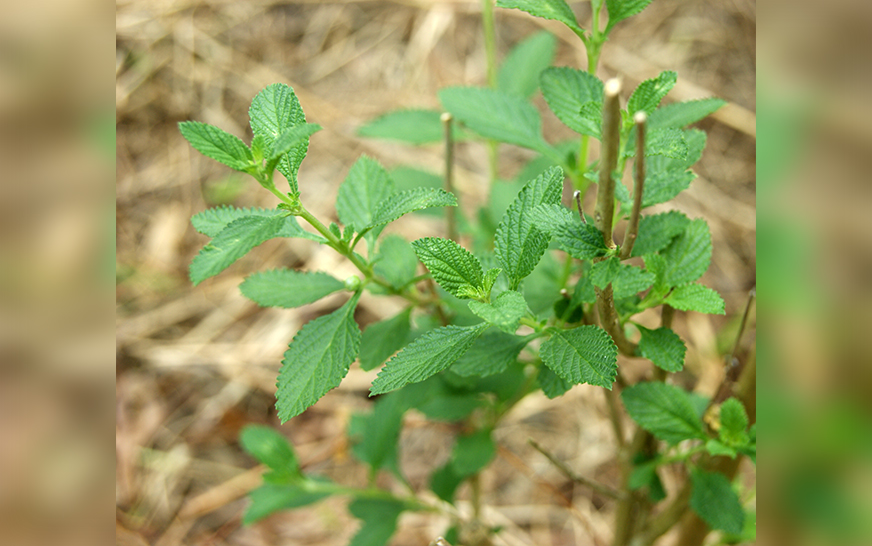Essential oils from the verbena family found to have anti-cancer properties
09/12/2019 / By Evangelyn Rodriguez

Essential oils have long been of interest to researchers, particularly their chemical composition. These oils are derived from aromatic plants and are often used for aromatherapy. The chemical compounds they contain are said to be their source’s essence; hence these plant components are considered to have powerful bioactivities that bring a lot of health benefits. In a recent study published in the Journal of Essential Oil Research, researchers from The Biochemistry Research Institute of La Plata “Professor Doctor Rodolfo R. Brenner” in Argentina examined the different essential oil chemotypes of the Lippia alba plant for their anti-cancer activities. They tested four L. alba chemotypes on two human cancer cell lines and found that the tagetenone chemotype is a promising chemopreventive agent against liver and lung cancer.
Lippia alba and its essential oils
L. alba is a flowering shrub that can be found in tropical and subtropical regions of America, the Caribbean, and various parts of South America and southern North America. L. alba belongs to the Verbena family (Verbenaceae) and is commonly grown in gardens in Central America. Also known by its common name bushy matgrass, L. alba is cultivated in Argentina for its essential oil.
L. alba is used for medicine in many places. Its leaves are made into tea and is a favorite remedy in Central America for intestinal problems and respiratory infections like influenza. Locals also use L. alba infusions to relieve heart problems, such as tachycardia (fast heartbeat). When added to herbal baths, L. alba can reduce fevers and stomach pain and cleanse the bladder.
In the scientific world, L. alba is known for its medicinal properties. Studies have described it as a sedative, an analgesic, an antipyretic, an anti-hypertensive, and an anti-inflammatory agent. It is also known for the chemical composition of its essential oils which vary depending on the plant’s origin, the growth stage of the plant, and the part used for distillation.
Numerous chemotypes of L. alba essential oils have been reported by researchers over the years. Chemotypes refer to plants of the same species and genus that look identical but differ in terms of the chemical components of their essential oils. While many studies have provided evidence of L. alba essential oils being rich sources of chemopreventive agents, not all of their chemical components have been studied.
The tagetenone chemotype shows promise as an anti-cancer agent
The essential oils of L. alba and their various components have anti-viral, antibacterial, anti-fungal, and anti-parasitic activities. Some compounds like citral, mycrene, and limonene also possess analgesic, anti-inflammatory, and sedative properties. Meanwhile, terpenoids like carvone, limonene, and geraniol have well-documented chemotherapeutic activities. These compounds are found in abundance in certain chemotypes of L. alba. (Related: Citrus essential oils help prevent liver cancer.)
For their study, the researchers evaluated the cytotoxicity of essential oils from four different L. alba chemotypes on human cancer cells. They tested these oils on liver cancer cells (HepG2) and lung cancer cells (A549). They also investigated the mechanism behind the cytotoxicity of an L. alba chemotype essential oil that is rich in a plant compound called tagetenone.
The researchers reported that the essential oils were toxic only to human cancer cells. They killed both liver cancer and lung cancer cells by arresting the cell cycle and triggering programmed cell death. Meanwhile, treatment with the tagetenone-rich essential oil caused a decrease in 3-hydroxy-3-methylglutaryl-coenzyme A (HMG-CoA) reductase and inhibited the formation of cholesterol. HMG-CoA reductase is an enzyme involved in the synthesis of cholesterol; its activation is also associated with cancer formation.
Based on these results, the researchers concluded that the ta chemotype could provide significant health benefits as a chemopreventive or chemotherapeutic agent.
Sources include:
Tagged Under: alternative medicine, anticancer, bushy matgrass, cancer cures, cancer development, cancer treatment, cell apoptosis, cell cycle arrest, chemopreventive, disease treatments, essential oils, heart health, heart problems, herbal medicine, Herbs, Lippia alba, Lippia alba chemotypes, Liver cancer, lung cancer, natural cures, natural medicine, prevention, remedies, research



















